COLORADO SPRINGS, Colo. Aca,!" In 1978, when the first experimental Block I satellite was launched, few knew what a Global Positioning System was or how far it would come today. Thirty years later, GPS has become a household acronym and such an important part of technology that many elementary schools are teaching it as part of their science curriculum. Odyssey Elementary School, a Science, Technology, Engineering and Math school in Falcon School District 49, is one of those schools, and two of their fourth grade classes recently brought in subject matter experts to help teach the GPS section of their Earth and Space Science curriculum.
1st Space BattalionAca,!a,,cs Capt. Charles Hayes III, Capt. Michael Luepke, Sgt. 1st Class Dustin Swinney and Sgt. Tony Lopes, all part of Army Space Support Team 3, with the help of Odyssey fourth grade teacher, Erik Russell, put together a unique experience for the 9- and 10-year-olds, May 5 and 6. The team gave a one-hour presentation on the GPS constellation that captivated the inquisitive class. Then, after the presentation, the students were put into smaller groups and taken to a nearby park where they ran through a navigation course using GPS units.
Aca,!A"Last summer I took a course with the Space Foundation and we did a similar activity at UCCS (University of Colorado - Colorado Springs), hiking like a scavenger hunt through the hills,Aca,!A? said Russell.
Aca,!A"I thought that would be a great idea, so I wrote a grant and the Falcon Education Foundation gave me a thousand dollars to buy a bunch of GPS units.Aca,!A?
Aca,!A"ItAca,!a,,cs fun because itAca,!a,,cs almost like a treasure hunt,Aca,!A? said 10-year-old Emmanuel Walker. Aca,!A"We get to learn and we get to know where different points are. ItAca,!a,,cs fun while weAca,!a,,cre finding it. ItAca,!a,,cs almost like a discovery or finding treasure.Aca,!A?
To get through the course, each group of four or five students was assisted by a Soldier, teacher or volunteer. The groups had to find seven different waypoints and had a challenge at each point. The original idea was to bury golf balls or a similar object for the students to find, but it Aca,!A"seemed kind of anti-climatic to me,Aca,!A? said Hayes.
Aca,!A"It seemed to me to reinforce the lessons that we taught them, we needed to test them on the knowledge that we had presented in a fun manner.Aca,!A?
Instead of golf balls, the students found cards with multiple choice questions that were based on information from the presentation given by the Soldiers.
According to Sydney Mitchell, also 10 years old, Aca,!A"This was a little bit different because weAca,!a,,cve never done a waypoint; weAca,!a,,cve only done coordinates like latitude and longitude. I also learned that a (GPS) satellite orbits around the Earth two times every day.Aca,!A?
One of the questions Walker encountered: Aca,!A"What is the minimum number of satellites needed for the GPS constellation'Aca,!A? His quick and correct answer: Aca,!A"24!Aca,!A?
Russell had originally arranged for a friend from Schriever to come out and co-teach the class, but plans fell through after an unexpected schedule change. Fortunately one of RussellAca,!a,,cs students, Britney Gizzi, had a father who stepped in to help. Lt. Col. Lee Gizzi put the word out to 2nd Space Company Commander, Maj. Todd Leitschuh, that the school needed help. Leitschuh turned to his Army Space Support Teams to see who was interested and Hayes volunteered his team.
Aca,!A"Colonel GizziAca,!a,,cs been great, and Capt. Hayes and all the guys have been really instrumental in putting this together,Aca,!A? said Russell.
Aca,!A"I had only done it once before, so IAca,!a,,cve learned a great deal from them. The presentations were great for the kids and they learned a lot as well.Aca,!A?
But the students were not the only ones who received some knowledge during the event. The Soldiers learned a few things themselves.
Aca,!A"I didnAca,!a,,ct know this was a magnet school to begin with, and when I found out they were a math and science school, I thought that was interesting. The fact that the kids had a pretty good basic understanding of satellite and navigation, and that they had already studied it for some time, I thought that was fantastic for that grade,Aca,!A? Hayes said.
According to Luepke, Aca,!A"They were using little robots that they could preprogram to go around a route and things like that.Aca,!A?
Aca,!A"They were using Bluetooth with (the robots); speaking into the Bluetooth, and telling the robots what to do. Next week, I think they have rockets,Aca,!A? added Swinney.
The experience was a memorable one for everyone involved.
According to Hayes, Aca,!A"The whole thing was great. The classes were attentive, they were well behaved. They knew why we were there, what we were there to teach and they seemed eager to learn. I thought the whole thing was an exceptional experience.Aca,!A?
Aca,!A"ItAca,!a,,cs always good to get out there with kids and to help teach them,Aca,!A? was LuepkeAca,!a,,cs comment. Aca,!A"I think it kind of personalizes the Army for them a little bit. A lot of them have aunts, uncles and parents in the military, but to have somebody come in and be able to interact with them in school, ask them some questions, to have a dialogue, I think itAca,!a,,cs good. Good for the Army, good for us, good for them.Aca,!A?
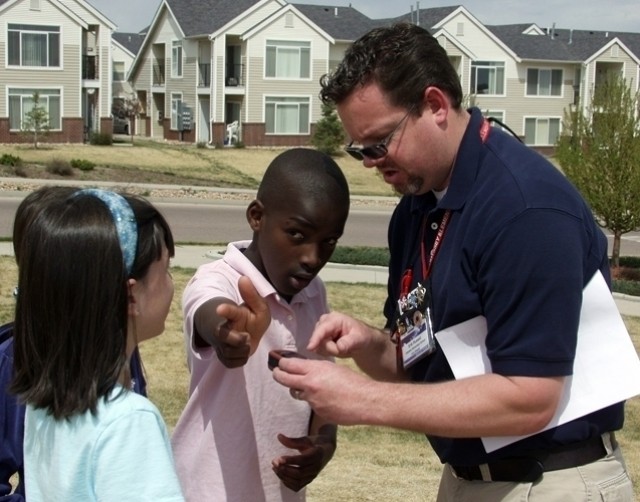
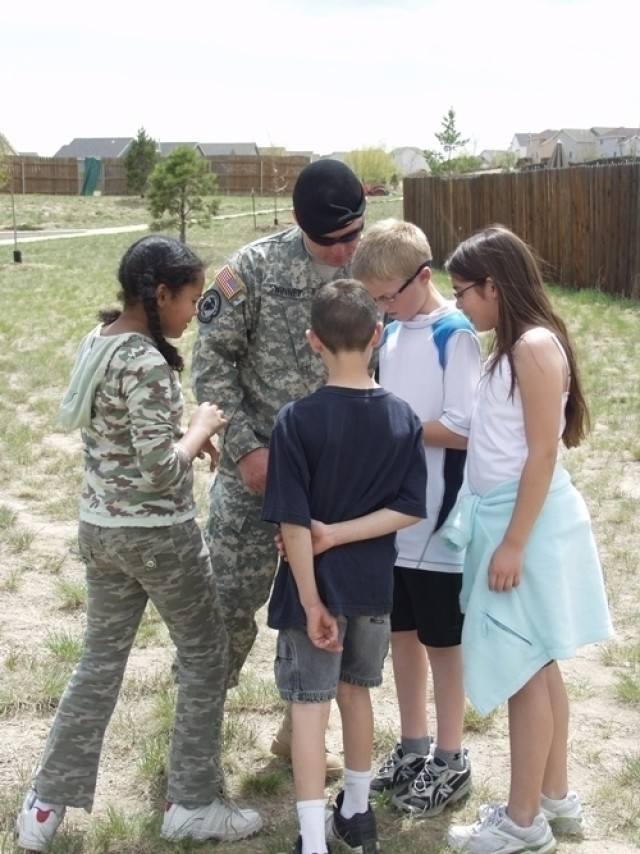
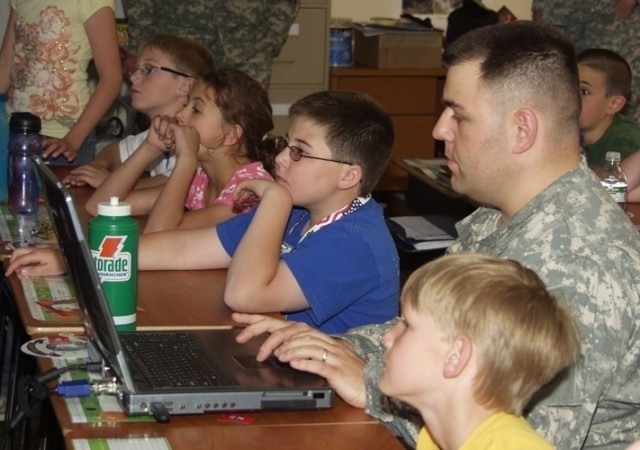

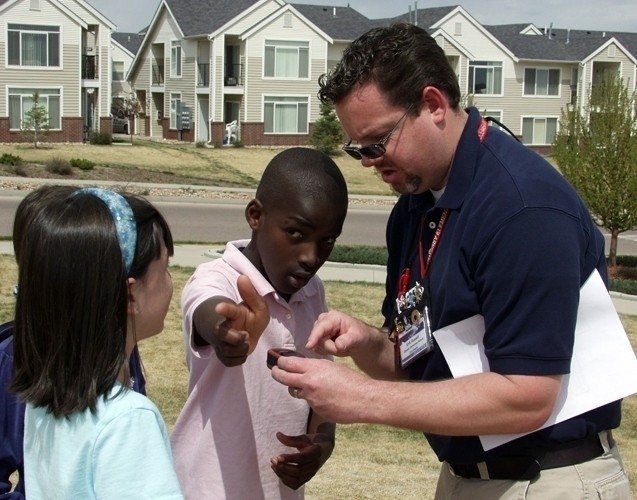
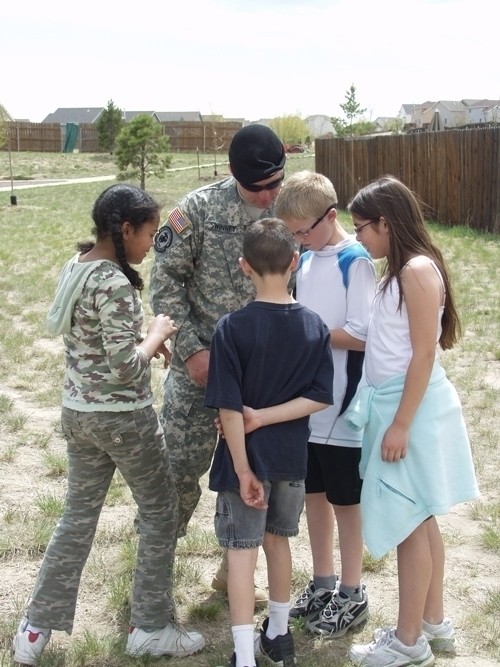
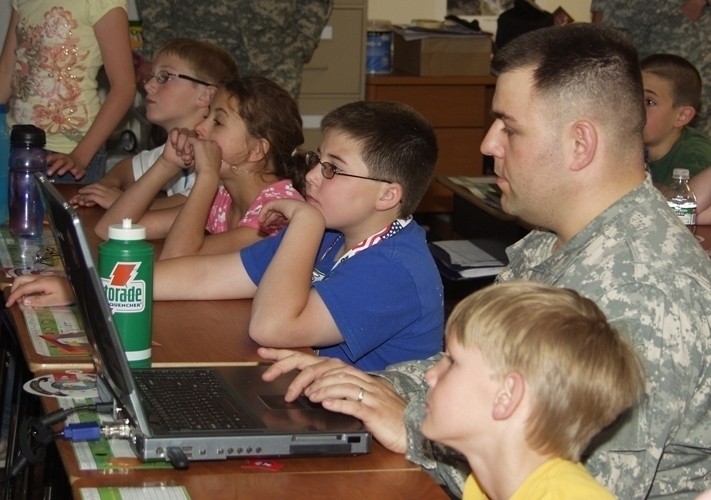

Social Sharing